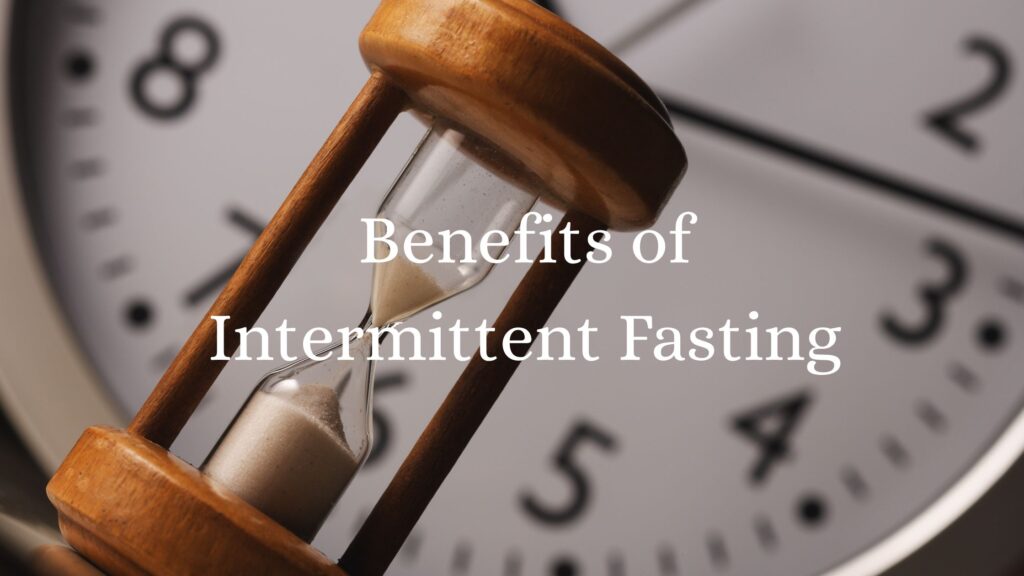Intermittent fasting has gained popularity as a simple and effective way to improve health and lose weight. The benefits of intermittent fasting 16/8 make it one of the most popular methods, allowing you to fast for 16 hours and eat during an 8-hour window. By following the right intermittent fasting schedule, you can boost metabolism, burn fat, and support overall wellness. People often wonder, is intermittent fasting really effective? What are its pros and cons? Research shows that intermittent fasting can improve insulin sensitivity, increase energy, support mental clarity, and even promote longevity. In this guide, we’ll explore the best intermittent fasting plans, what to eat, and the benefits for both men and women over 30 days and beyond.
What is Intermittent Fasting?
Intermittent fasting (IF) is more than just a diet—it’s a lifestyle approach that focuses on when you eat rather than what you eat. Unlike traditional diets that require strict calorie counting or eliminating certain foods, intermittent fasting organizes your eating schedule into specific periods of eating and fasting. This method allows your body to rest from constant digestion and encourages metabolic flexibility.
There are several popular intermittent fasting methods:
- 16/8 Intermittent Fasting Schedule – This method involves fasting for 16 hours and eating within an 8-hour window. It’s one of the easiest and most effective schedules for beginners and has become widely popular for weight loss and overall health benefits.
- 24-Hour Fast Once a Week – This approach involves fasting for a full 24 hours, usually once or twice a week. It helps boost fat burning, improve insulin sensitivity, and promote cellular repair.
- Alternate-Day Fasting – In this method, you alternate between fasting days and normal eating days. It’s highly effective for weight management and metabolic health but requires discipline and planning.
- 5:2 Fasting Plan – You eat normally for five days of the week and restrict calories (around 500–600 calories) for two non-consecutive days. This method is more flexible and easier to integrate into a busy lifestyle.
- Time-Restricted Eating – Here, you consume all your meals within a fixed daily window, such as 10 AM–6 PM. This method doesn’t require calorie counting but encourages healthier eating habits.
The main goal of intermittent fasting is to give your body periods without food, allowing it to switch from using glucose for energy to burning stored fat. Over time, IF can support weight loss, improve metabolic health, and promote better energy levels.
How Does Intermittent Fasting Work?
Intermittent fasting works by changing the way your body uses energy and triggering several beneficial biological processes. When you fast, your body undergoes several metabolic changes:
- Lowered Insulin Levels – During fasting, insulin levels decrease significantly. Lower insulin makes it easier for the body to access stored fat, helping with weight loss and reducing the risk of insulin resistance.
- Increased Fat-Burning Hormones – Fasting increases levels of norepinephrine and growth hormone, which support fat metabolism and muscle preservation. This hormonal shift helps your body burn fat more efficiently while maintaining lean muscle.
- Cellular Repair and Autophagy – Fasting activates a natural repair process called autophagy, where cells remove damaged components and regenerate new ones. This process is linked to reduced inflammation, improved cellular health, and potentially increased lifespan.
- Switching Energy Sources – When your body runs out of glucose from recent meals, it starts using stored fat as its primary energy source. This switch is crucial for fat loss and improving metabolic flexibility.
- Improved Brain Function – Fasting may enhance brain health by increasing the production of brain-derived neurotrophic factor (BDNF), which supports neuron growth and cognitive function.
In simpler terms, intermittent fasting allows your body to pause digestion, lower blood sugar, burn fat for energy, and repair cells—all while improving hormone balance and mental clarity. Over time, these effects combine to support weight loss, enhance metabolism, and improve overall health.
Best Intermittent Fasting Plans
Here are the most popular intermittent fasting plans:
- 16/8 Method – Fast 16 hours, eat in an 8-hour window. Ideal for beginners and effective for weight loss.
- 5:2 Fasting Plan – Eat normally five days a week and restrict calories to 500–600 on two non-consecutive days.
- 24-Hour Fast Once a Week – A full-day fast improves fat burning and insulin sensitivity.
- Alternate-Day Fasting – Alternate fasting and eating days for long-term weight management.
Time-Restricted Eating – Eat within a set window daily, e.g., 10 AM–6 PM, without counting calories.
What Can I Eat While Intermittent Fasting?
During fasting:
- Drink water, black coffee, or herbal tea.
During eating windows:
- Focus on whole foods, lean proteins, healthy fats, and vegetables.
- Avoid processed foods, sugary drinks, and excessive refined carbs.
Proper nutrition ensures energy, muscle retention, and maximizes fasting benefits.
Best Intermittent Fasting for Weight Loss
The best intermittent fasting for weight loss is the 16/8 method because it naturally reduces calorie intake and encourages fat burning. Extended fasts like the 24-hour fast once a week can also support fat loss but require more discipline.
Benefits of Intermittent Fasting for 30 Days
Following intermittent fasting consistently for 30 days can bring noticeable improvements in both physical and mental health. While results vary depending on your body type, lifestyle, and diet, most people begin to experience measurable benefits after a month. Here’s a detailed breakdown of what you can expect:
1. Effective Weight Loss and Fat Reduction
One of the most noticeable benefits of intermittent fasting for 30 days is weight loss. By limiting your eating window and reducing overall calorie intake naturally, your body starts burning stored fat for energy. The 16/8 intermittent fasting schedule is especially effective for beginners, as it creates a structured fasting period without making you feel deprived. After 30 days, many people notice a reduction in abdominal fat and a leaner physique.
2. Improved Insulin Sensitivity and Blood Sugar Control
Intermittent fasting helps regulate insulin levels, which is key for managing blood sugar. Lower insulin levels allow your body to use glucose more efficiently and reduce the risk of insulin resistance. After 30 days of consistent fasting, many people notice improved energy levels, reduced sugar cravings, and more stable blood sugar throughout the day.
3. Boosted Metabolism and Energy Levels
Fasting triggers hormonal changes that increase metabolism, including higher levels of norepinephrine and growth hormone. These changes help your body burn fat more effectively and maintain lean muscle mass. By the end of 30 days, many people report feeling more energetic, focused, and productive during the day.
4. Enhanced Mental Clarity and Focus
During fasting, the brain benefits from increased production of brain-derived neurotrophic factor (BDNF), which supports neuron growth and cognitive function. After 30 days, you may notice improved concentration, sharper memory, and better mental clarity. Many intermittent fasting enthusiasts describe a “mental boost” after adjusting to the fasting schedule.
5. Cellular Repair and Longevity
Fasting activates autophagy, a natural process where cells remove damaged components and regenerate. This cellular repair can reduce inflammation, protect against chronic diseases, and support long-term health. Even within 30 days, your body begins to benefit from this regenerative process, which may contribute to improved longevity over time.
6. Reduced Inflammation and Improved Heart Health
Intermittent fasting has been shown to reduce markers of inflammation, which are linked to chronic diseases like heart disease, diabetes, and arthritis. After a month of consistent fasting, many people notice lower blood pressure, improved cholesterol levels, and a healthier cardiovascular profile.
7. Improved Eating Habits and Mindful Eating
Fasting encourages more mindful eating. By limiting your eating window, you become more conscious of meal choices and portion sizes. After 30 days, many people naturally adopt healthier eating habits, reduce snacking, and feel more in control of their diet.
8. Support for Hormonal Balance
Intermittent fasting helps balance several key hormones, including insulin, human growth hormone, and norepinephrine. For women, moderate fasting can support hormonal health, menstrual regularity, and energy balance when done carefully.
Benefits of Intermittent Fasting for Women
Intermittent fasting offers a range of health benefits specifically for women when followed correctly. Women’s bodies are sensitive to hormonal changes, so the fasting window and type of intermittent fasting chosen play an important role in maximizing results while maintaining balance. Here’s a detailed look at the benefits of intermittent fasting for women:
1. Balanced Hormones
Intermittent fasting can help regulate key hormones, including insulin, estrogen, and progesterone. Stable insulin levels reduce blood sugar spikes, which may help prevent conditions like polycystic ovary syndrome (PCOS) and support reproductive health. When done moderately, fasting promotes hormonal balance without causing menstrual irregularities.
2. Weight Loss and Fat Reduction
Women often struggle with stubborn fat around the abdomen and hips. Intermittent fasting, especially the 16/8 intermittent fasting schedule, can help the body burn stored fat efficiently. After several weeks of consistent fasting, women may notice a reduction in body fat, improved waist-to-hip ratio, and a leaner, healthier physique.
3. Improved Insulin Sensitivity
Women are more prone to blood sugar fluctuations due to hormonal changes during their menstrual cycle. Intermittent fasting improves insulin sensitivity, allowing the body to process glucose efficiently. This reduces sugar cravings, stabilizes energy levels, and lowers the risk of type 2 diabetes over time.
4. Boosted Energy and Mental Clarity
Fasting helps improve focus and concentration by increasing brain-derived neurotrophic factor (BDNF), which supports brain function. Women following intermittent fasting often report sustained energy levels, sharper focus, and enhanced productivity throughout the day.
5. Supports Healthy Aging and Longevity
Intermittent fasting activates autophagy, a natural cellular repair process that removes damaged cells and regenerates new ones. For women, this helps reduce inflammation, supports heart health, and may slow down signs of aging, leading to better overall wellness.
6. Improved Heart and Metabolic Health
Women following intermittent fasting may experience lower blood pressure, improved cholesterol levels, and better metabolic markers. Fasting reduces inflammation and oxidative stress, which contributes to a healthier cardiovascular system.
7. Encourages Mindful Eating Habits
Intermittent fasting helps women develop better eating habits. Restricting the eating window encourages mindful meal choices, reduces snacking, and promotes healthier portion control. Over time, this can lead to sustainable, long-term weight management.
8. Supports Hormonal Health During Menopause
For women approaching menopause, intermittent fasting can help regulate insulin, reduce abdominal fat, and support energy levels. A carefully structured fasting plan can ease menopausal symptoms and maintain overall health.
What Are the 5 Benefits of Intermittent Fasting?
If you are wondering “what are the 5 benefits of intermittent fasting,” here’s a clear breakdown of the most significant advantages:
1. Weight Loss and Fat Reduction
One of the primary benefits of intermittent fasting is effective weight loss. By limiting the eating window, the body naturally consumes fewer calories and burns stored fat for energy. Fasting also boosts metabolic rate and promotes fat loss without sacrificing lean muscle, making it a sustainable weight management strategy.
2. Improved Metabolism
Fasting triggers hormonal changes, including increased norepinephrine and growth hormone levels, which enhance metabolism and fat-burning efficiency. Improved metabolism helps the body maintain energy, burn fat faster, and support overall metabolic health.
3. Enhanced Brain Function and Mental Clarity
Intermittent fasting increases the production of brain-derived neurotrophic factor (BDNF), which supports neuron growth and cognitive function. Many people notice improved focus, sharper memory, and better mental clarity after consistent fasting.
4. Cellular Repair and Longevity
During fasting, the body activates autophagy, a natural process where cells remove damaged components and regenerate new ones. This cellular repair reduces inflammation, supports long-term health, and may contribute to longevity, making intermittent fasting a powerful tool for aging gracefully.
5. Better Heart Health
Intermittent fasting can improve key cardiovascular markers, including blood pressure, cholesterol levels, and inflammation. By supporting heart health and reducing the risk of chronic diseases, fasting contributes to overall well-being.
Benefits of 24-Hour Fast Once a Week
A 24-hour fast once a week is a powerful way to reset your body and mind. Unlike shorter fasts such as the 16/8 intermittent fasting schedule, a full-day fast gives your body extended time to rest from digestion, tap into fat stores, and activate deeper repair processes. When done correctly and safely, the benefits of a 24-hour fast once a week can be remarkable.
1. Promotes Deep Fat Burning
Fasting for 24 hours pushes your body to use stored fat as its main fuel source. This extended fasting period lowers insulin levels for a longer time, allowing fat-burning hormones to stay active. Many people notice improved fat loss and better weight management after a few weeks of practicing a weekly fast.
2. Boosts Cellular Repair and Autophagy
One of the biggest benefits of 24-hour fast once a week is the activation of autophagy—a process where the body cleans out damaged cells and regenerates new ones. This cellular repair reduces inflammation, supports immunity, and may help prevent chronic diseases.
3. Improves Insulin Sensitivity
A full-day fast helps reset insulin sensitivity, which is crucial for controlling blood sugar levels. This is especially helpful for people at risk of type 2 diabetes or those dealing with sugar cravings and energy crashes. Over time, improved insulin sensitivity leads to more stable energy and better metabolic health.
4. Supports Heart and Digestive Health
A weekly 24-hour fast can lower blood pressure, improve cholesterol levels, and reduce markers of inflammation—all of which support cardiovascular health. It also gives your digestive system a much-needed break, helping reduce bloating and promoting gut healing.
5. Enhances Mental Clarity and Focus
During longer fasts, many people report improved concentration and mental clarity. This happens because the body shifts to burning fat for energy, producing ketones, which are an efficient fuel for the brain. A weekly 24-hour fast can improve focus, productivity, and even mood stability.
6. Builds Discipline and Mindful Eating Habits
A 24-hour fast once a week teaches self-control and mindfulness around food. It helps break the habit of mindless snacking and encourages a deeper appreciation for meals. This discipline often carries over into daily eating habits, making healthier food choices easier.
7. May Support Longevity
Regular fasting has been linked to reduced inflammation, better metabolic function, and improved cellular repair—all of which contribute to long-term health and longevity. While research is still ongoing, many experts believe that incorporating a weekly 24-hour fast can support healthy aging.
Is Intermittent Fasting Really Effective? Pros and Cons
Pros:
- Supports natural weight loss
- Boosts metabolism
- Reduces inflammation
- Improves heart and brain health
- Promotes longevity
Cons:
- Initial hunger or fatigue
Requires meal planning
Hormonal imbalance risk for aggressive fasting in women
Is Intermittent Fasting Safe?
Intermittent fasting is safe for most healthy adults. Pregnant women, people with medical conditions, or those with eating disorders should consult a doctor before starting.
Conclusion
The benefits of intermittent fasting 16/8 and other fasting schedules make it a versatile and effective approach for weight loss, improved metabolism, and better health. Whether you choose a 16/8 plan, a 24-hour fast once a week, or another fasting schedule, consistency is key. Intermittent fasting can improve energy, focus, fat loss, and even promote longevity. Following a proper intermittent fasting schedule, eating nutrient-rich foods, and listening to your body ensures safety and optimal results. Start your intermittent fasting journey today to experience the many health benefits, including improved heart health, better mental clarity, and balanced hormones.
Also Read : Best supplement for weight loss for women
FAQs
What are the benefits of intermittent fasting?
It helps with weight loss, fat burning, improved metabolism, heart health, mental clarity, and longevity.
Is it okay to fast 16 hours every day?
Yes. The 16/8 method is safe for most adults and promotes fat loss and overall health.
Is it good to intermittent fasting every day?
Daily intermittent fasting is effective, especially 16/8. Adjust if fatigue or hormonal changes occur.
Why is 16 hours the magic number for fasting?
Fasting for 16 hours allows fat burning, lowers insulin, and triggers cellular repair.
Can intermittent fasting improve brain health?
Yes. It enhances focus, clarity, and may protect against age-related cognitive decline.
Does intermittent fasting affect muscle mass?
With adequate protein, intermittent fasting preserves muscle while promoting fat loss.
Can women follow intermittent fasting safely?
Yes. Start gradually and avoid aggressive fasting to maintain hormone balance.
What can I eat while intermittent fasting?
During fasting: water, black coffee, herbal tea. During eating: whole foods, lean proteins, healthy fats, vegetables.
Is intermittent fasting safe for everyone?
Safe for most healthy adults. Consult a doctor if pregnant, nursing, or having medical conditions.





